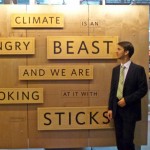 You’ve seen it on TV, you’ve heard it on the radio, you’ve read it in the papers – PG&E wants you to conserve energy and save the planet. They’ll even send you rather substantial rebates in the mail if you are willing to upgrade some systems in your home or purchase new appliances.
You’ve seen it on TV, you’ve heard it on the radio, you’ve read it in the papers – PG&E wants you to conserve energy and save the planet. They’ll even send you rather substantial rebates in the mail if you are willing to upgrade some systems in your home or purchase new appliances.
Now all of this is enormously helpful and commendable but I couldn’t rid myself of that nagging question… How does all this make financial sense for our friends at PG&E? Never before had I seen in our capitalistic society a company encouraging its customer to consume less of its product. Can you imagine McDonalds saying – “Eat less hamburgers! There are no happy meals here… they will all make you fat!”
So what’s going on with PG&E? Is this truly enlightened business that wants to save the environment or does it all in some convoluted way actually make business sense? I set out to find the answers at the last West Coast Green Show in San Francisco where I interviewed lovely Katie Romans, an Environmental Communications representative from PG&E. (The video is about 3 minutes.)
So now you know. The answer is “Decoupling” – a novel approach towards utility pricing that separates a utility’s ability to make money from the amount of electricity that it sells. So while PG&S forest conservation and methane capture efforts appear genuine, it was nothing but a California Decoupling law, enacted in 1982, that effectively disincentivized PG&E to sell more energy for profit.
No need to worry about them though; they have other ways to make the bank. In fact, last year the utility filed for, and received shareholder earnings based upon energy savings they delivered to customers, and the program costs were already recovered in their rates. Besides that, the utility company also benefits from increased customer satisfaction, a boost in its “environmental” image and gets a lot of community and political support.
You have got to love the business model. The company is required to sell less of its product and help its customers save money. And in return, it makes more and appears as an environmental hero. Not bad at all, is it? Go PG&E, or to be more accurate – go California!

 9 Smart Ways to Winterize Your Home for Comfort and Savings
9 Smart Ways to Winterize Your Home for Comfort and Savings Carbon Footprint 101: What’s Yours and What to Do About It?
Carbon Footprint 101: What’s Yours and What to Do About It? Top 4 Eco-Friendly Roof Trends for 2014
Top 4 Eco-Friendly Roof Trends for 2014